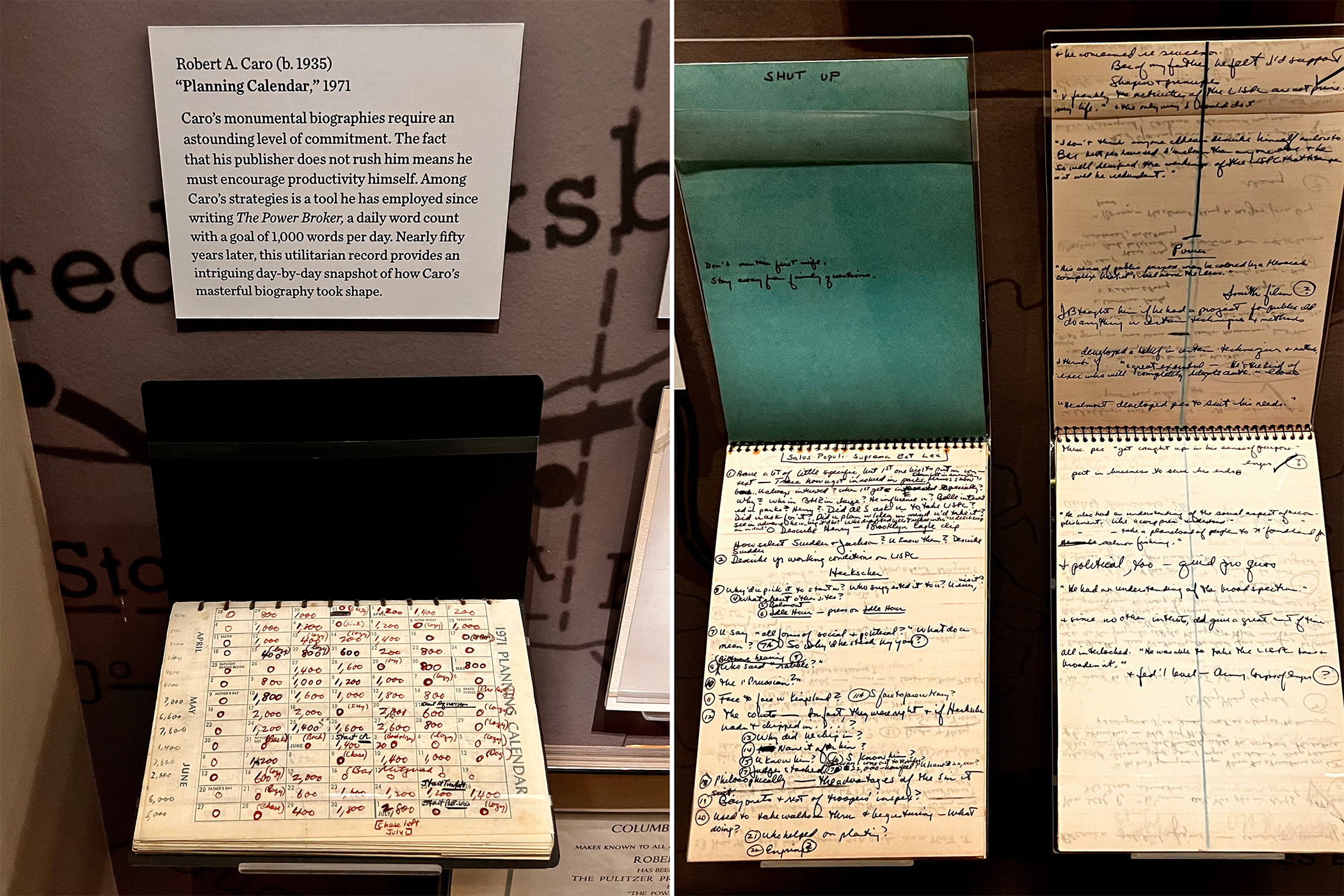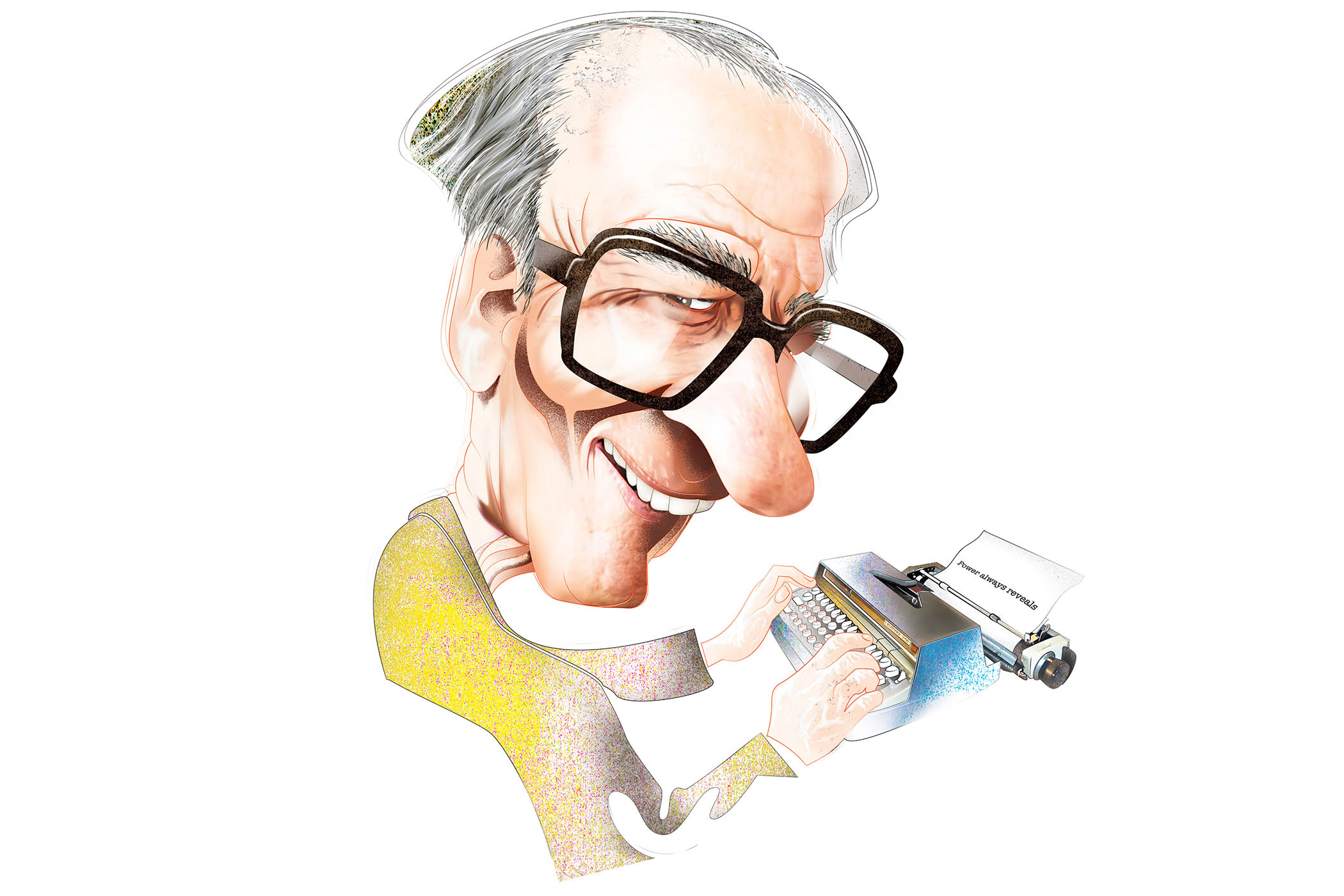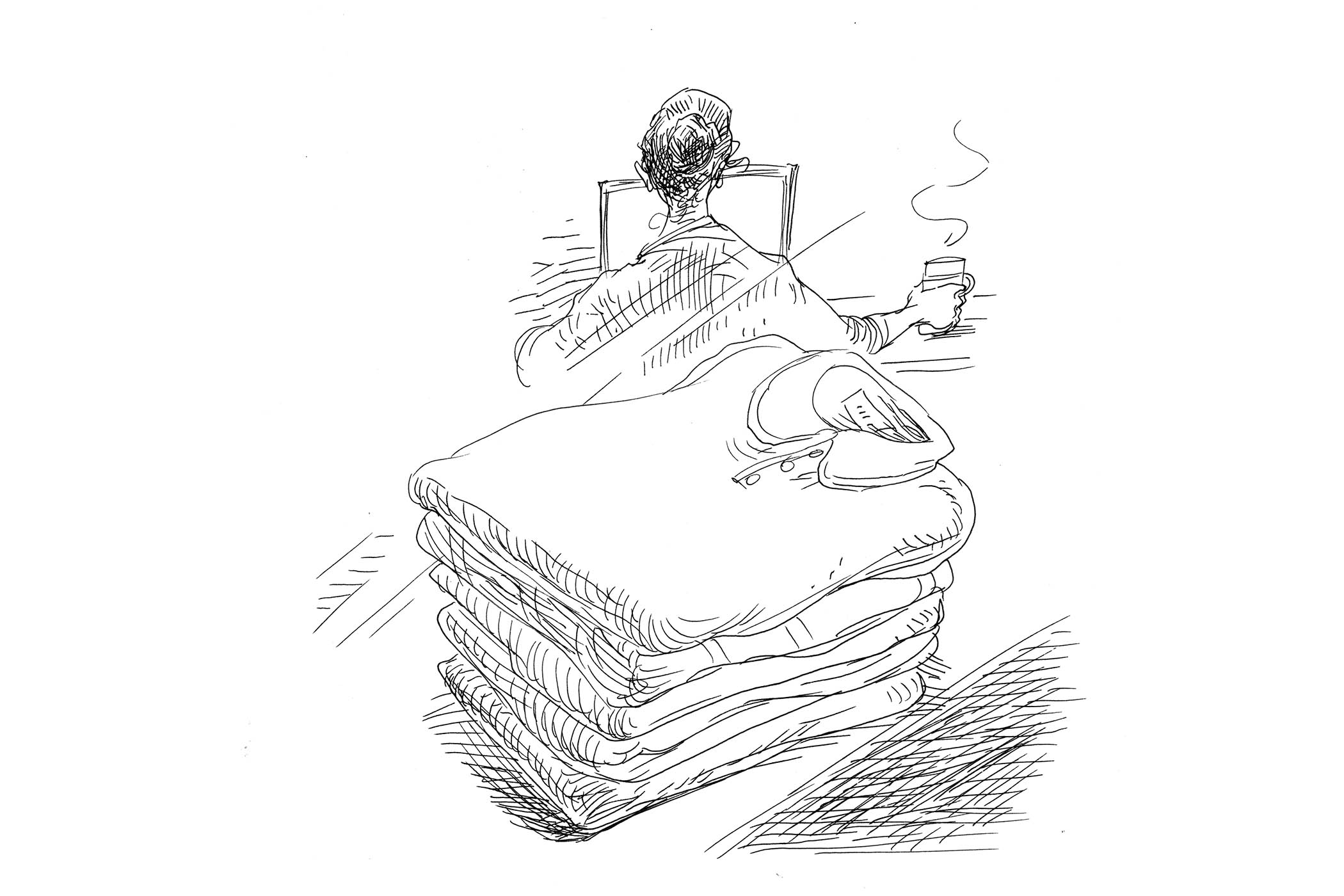Illustration by Andy Bunday
Robert Caro, who will be 90 years old at the end of this month, is widely credited with reinventing the art of political biography. Yet in five decades of writing, he has only addressed the lives of two men: Robert Moses and Lyndon Johnson.
When The Power Broker was published in 1974, some wondered why an unelected New York bureaucrat was worthy not only of a biography but one that runs to 1,200 pages. Yet the book became an instant classic, demonstrating how as an urban planner Moses, over more than 40 years, transformed the city’s landscape.
The Power Broker “helped to shape how I think about politics”, Barack Obama has said. New York’s current frontrunner for mayor, Zohran Mamdani, keeps a copy on his shelf. When Mark Rutte, then prime minister of the Netherlands and now secretary general of Nato, thought to himself, “Who can I meet that’s interesting in New York?” he thought of Caro – and started to lurk at Patsy’s, the Italian restaurant off Broadway on 56th, a favourite haunt of the biographer.
When that didn’t work, Rutte was eventually able to make a lunch date – but stuck in traffic, he was nearly late. Caro is renowned for his own punctuality, and let’s just say doesn’t like others to be late, either. “We jumped out of the cab and ran three or four blocks to be two minutes ahead of him!” Rutte laughs. The pair are now firm friends.
Caro made the name of Moses indelible: but more than that, for politicians such as Rutte, he demonstrated the patterns of power. In New York, if you’ve been to Lincoln Center or Shea Stadium, if you’ve driven on almost any highway, if you’ve taken your children to a playground or walked on Jones Beach, you have Moses to thank. Or to curse, if your home was destroyed to make way for one of his roads.
“I must have heard 100 times, nobody’s going to read a book about Robert Moses,” Caro said last year on the book’s 50th anniversary. “Now they tell me it’s in its 74th printing. That’s a lot of books.”
After Moses, he moved on to President Lyndon Johnson: the great task he has yet to complete. Four fat volumes have been published – the last in 2012, The Passage to Power, which takes Johnson and the reader to 1964, months after he became president following the Kennedy assassination.
But as with Moses, the details of a man’s life fuel a thesis that seems more relevant to our present condition than ever. “You read these books and it’s so clear his analysis of where power comes from is still so accurate,” says Elliott Kalan, former head writer for The Daily Show with Jon Stewart and a Caro superfan. Along with Roman Mars he is the host of a podcast, The 99% Invisible Breakdown: The Power Broker – which dissects the giant tome along with guests including Conan O’Brien (a Caro obsessive), Pete Buttigieg and Alexandria Ocasio-Cortez. “He shows that power does not come from the structure of the laws, necessarily,” Kalan says. “It doesn’t come from the things we were taught in civics class. It comes from money. It comes from intimidation. It comes from convincing people they will be either hurt or rewarded if they do what you want them to do. That’s exactly the situation we’re living in right now.”

This year Caro received the first ever Historians’ Laureate Medal in the 221-year-old existence of the New York Historical, the museum and archive on Central Park West that holds and displays his archive, and which Caro loved visiting as a boy.
Newsletters
Choose the newsletters you want to receive
View more
For information about how The Observer protects your data, read our Privacy Policy
Caro was born and raised in New York. His father was a Polish immigrant. When he was five, his mother became very ill and died when he was 11. In the years when she was sick, his aunt Bea, his mother’s sister, would take him to the city’s museums – the New York Historical (then called the New-York Historical Society) was a favourite.
He was educated privately, at the Horace Mann school in the Bronx, before going to Princeton; in 2016 he told the Paris Review “the nicest thing that’s happened to me” was in 2012 when Horace Mann set up the Robert Caro ’53 prize for literary excellence in the writing of history.
Louise Mirrer, chief executive of the New York Historical, a historian and Caro’s friend for two decades, takes care to mention what a gifted stylist he is. “I learned from him the importance of paying attention to the beauty of language: that is why he can write a 1,000-page book, and it’s a page-turner.”
That the accolade from his old school means so much to Caro –who has won the Pulitzer prize twice, ditto the National Book Award and pretty much every other major literary honour going – says something about his modesty, which is as striking as his old-school New York accent (“moind” for mind; “aw-fice” for office).
“There are a few people who are the objects of near unanimous admiration and praise in our line of work and I think Bob Caro is one of them,” says David Remnick, editor of the New Yorker (which first published The Power Broker extracts).
Remnick and Caro met in 1982, when the first volume of the Johnson biography, The Path to Power, was published; Remnick was then a journalist at the Washington Post.
“When I was a kid reporter he could not have been more welcoming or kinder,” Remnick tells me. “And he didn’t forget it. Twenty years later, I was in a different place in my career, and he remembered that first meeting very keenly. He was incredibly generous.”
It was Caro's own work as a journalist that made him. He and his wife, Ina, were married as soon as he left college; he went to work for the New Brunswick Daily Home News at $52 a week, before moving on to Newsday, which was in those days a “crusading-type” paper, as Caro has called it; it was being an investigative reporter that fuelled his passion for discovering the structure behind the structure.
Rutte loves all of Caro’s work, but points especially to the third volume of his Johnson biography, Master of the Senate (2002), as one he returns to in thinking about politics. “I’m a totally different politician than Johnson … I can only look up at Johnson with a very stiff angle of my neck! He is such a giant of American politics, but you see how when he was a senator, and particularly when he was senate majority leader, how he was able to grasp power and use it. And in his career he often did use that power for the good of the country – when you look at things like the Voting Rights Act.”
In 2022, the documentary Turn Every Page examined Caro’s relationship with his editor, the late Robert Gottlieb. The title comes from Caro’s belief there is only one way to the heart of a subject: to look at every piece of evidence, to talk to everyone – not just to those in power, but those whom power might affect.
“If I want to write about power,” he told Mars and Kalan of writing The Power Broker, “I can’t just write about the guy who did this; I have to write about the people to whom he did this. This changed my whole idea of the book.”
It is this deep humanity and compassion that makes his work remarkable. He tracked down the Bronx residents displaced by Moses’s vast expressways and heard their stories. To begin his Johnson work, he and Ina moved to the hill country of East Texas for three years: there were three fig trees in the yard of their house, and it was Ina’s fig jam that opened doors with the locals. As a partner in his work “you can’t overstate her importance”, says Mars. Caro types on a Smith-Corona; he uses legal pads and a pen. There are no short cuts in his work.
No one I speak to wants to discuss whether, at 90, he will finish the fifth and final volume of his Johnson biography. Civil rights, the Vietnam war and the end of Johnson’s life are yet to come. He dislikes the question “When are you going to finish?”.
No one wants to displease him. I understand that; a few years ago, I had dinner with a neighbour of his in East Hampton – where he has a country house – and the Caros came along. Everyone was fascinated by him; he strove mightily, kindly, to talk about anything but himself. There was nothing that didn’t spark his curiosity. Even now, his monument needs no adornment. Money. Intimidation. Power. How people will be hurt or rewarded if they do what you want them to. If you want to understand where we are now, read Robert Caro, and you will.
Robert Caro
Born New York
Alma mater Princeton University
Work Biographer
Family Wife, Ina, one son, Chase



